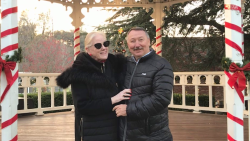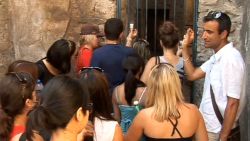It’s a blistering Thursday night in Philadelphia’s Society Hill neighborhood, and every single one of Israeli restaurant Zahav’s tables, bar chairs and private dining rooms is full.
The expediter at the kitchen window is managing dozens of tickets filled with order after order of branzino with sweet corn, creamy eggplant, Persian rice and braised lamb shoulder with pomegranate molasses.
A few feet away from her is chef and co-owner Michael Solomonov, who is simultaneously sliding his famous laffa bread into a 900 degree oven, shouting warnings and accolades to his kitchen staff and figuring out what to play next over the sound system. (He goes with Drake’s “Nice for What.”)
Before the age of 40, Solomonov has managed to go from drug addict and college dropout to father, cookbook author and four-time James Beard Award winner.
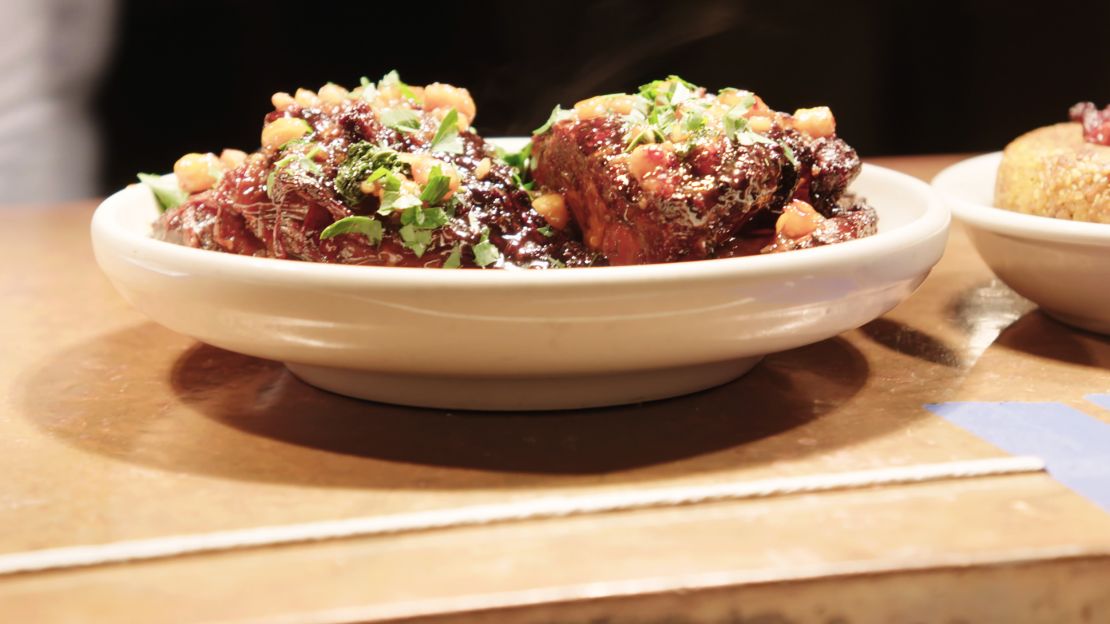
The chef says his success is partially owed to his decision to live here in Philadelphia. He’d graduated from cooking school in Florida, was on his way to New York and took a pit stop.
He quickly realized Philadelphia was just as awesome as its northern neighbor but cost a whole lot less to live in.
“Philly is multiple communities that creates this one fantastic place to live,” says Solomonov. “It is progressive. It is super historic. It is a place where you are free, or freer than some of our more expensive neighboring cities to be kind of who you are … to be expressive, to try new things, to take risks.”
Philadelphia is already a destination. It’s Rocky. It’s the Liberty Bell.
Yet Solomonov encourages visitors to see even more and to take advantage of the restaurants, cultural gems and neighborhoods built by communities of immigrants who, like himself, make the city rich.
Solomonov spent a few days giving CNN Travel his version of a city tour.
Walk everywhere without a map
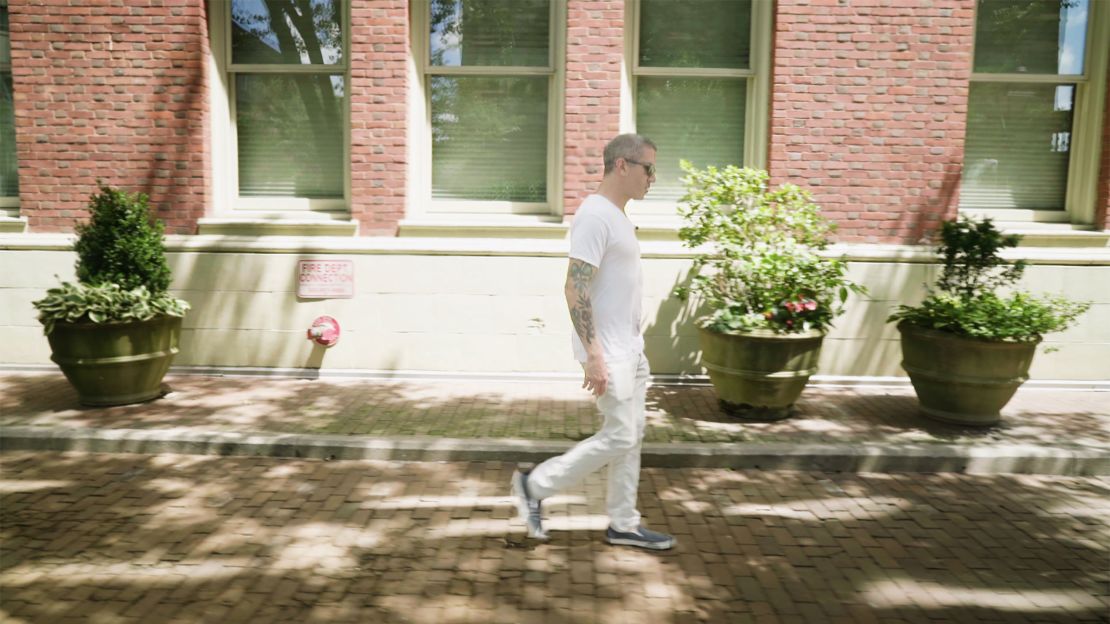
With museums, parks and historic sites, you could easily become overwhelmed by the number of things to do in Philadelphia. The city’s downtown is second only to midtown Manhattan in the United States in the number of cultural institutions in its core.
Solomonov has an easy morning ritual he highly recommends: Take a long walk along Walnut Street.
He’s a fast walker, but you can take a leisurely stroll from the shady tree-lined open campus of University of Pennsylvania, past Rittenhouse Square and on toward Washington Square Park, where you can take a break away from the tourist throngs.
Solomonov often walks this street with his business partner, Steve Cook, an investment banker turned chef. Together they run Zahav, Federal Donuts, Goldie and Abe Fisher. They say you can’t help but see the number of homeless on the streets. One out of every four people in Philadelphia lives below the poverty line, according to the US Census.
So Solomonov and Cook opened The Rooster, just two blocks north of Walnut on Sansom Street at South 16th Street. It’s cozy and diner-like, and its profits go to a hospitality program at the Broad Street Ministry.
Next stop: FRIEDA. It’s a coffee shop and a community center that offers activities for seniors, Yiddish lessons and chocolate buttons – cookies dipped in chocolate with a crunchy, crispy smaller cookie inside. From there, you’ll pass the historic area that includes the National Constitution Center.
Look out for a plaque noting Alexander Hamilton’s former home at 226 Walnut. He lived here for five years, and it’s here where he had his affair with the married Maria Reynolds.
Don’t miss:
- Cafe Olé: Coffee with Mediterranean snacks, 147 North 3rd Street, Philadelphia
- Curtis Center Building: This historic building features a Maxwell Parrish mosaic that Solomonov loves, 601 Walnut Street, Philadelphia
- Rail Park: An elevated oasis, 1300 Noble Street, Philadelphia
- Mikveh Israel Synagogue: Open to visitors with tours upon request, 44 North 4th Street, Philadelphia
Don’t stroll too far without eating
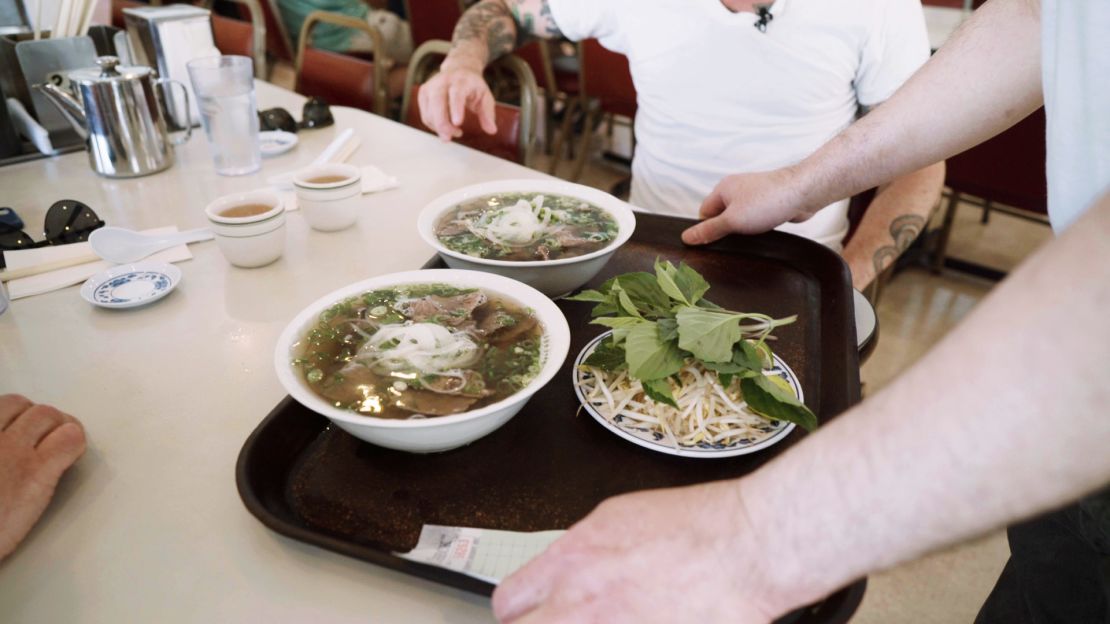
Solomonov was born in Israel but grew up in Pittsburgh. As a teenager, he and his family started to spend long periods living in Israel. He initially felt like an outsider there, partially because he only knew “Hebrew school Hebrew.” His feelings changed when he found work in a bakery.
Solomonov says an Israeli bakery is like city hall, especially on Fridays.
“I went from being this sort of a recluse in the States to being part of this community,” he says. “I fell in love with hard work. I fell in love with doing things with my hands. I’ve always been a little ADD. So, I finally found something that I was not only good at, but I could make an income at, and it beats selling pot.”
The Israeli community in Philadelphia dates the Jewish history here back before the country’s founding. The traditional Congregation Mikveh Israel says they are the oldest continuously running synagogue in the country.
One in 10 residents of Philadelphia was born outside of the country, and Solomonov recommends getting to know the immigrant communities through their restaurants.
Pho 75 is a family-run place that’s been selling bowls of rich broth, noodles and tender beef for more than 20 years. It’s casual and cavernous with long tables serving thousands of bowls of pho per day. Almost a decade ago, they became well-known after a visit from the late Anthony Bourdain. Mentioning his name still elicits a quiet nod of love and gratitude from its employees.
There are two Pho 75 locations. Head to the one in South Philadelphia to make an afternoon out of eating; From this location, you can easily walk over to the Italian Market. It’s among the oldest outdoor markets in the country.
In good weather, stalls are filled with fruits and vegetables. Even on cold or heat-wave-hot days, you can visit dozens of old and inexpensive shops.
Stuff yourself with a wide variety of cheeses sold at Di Bruno Brothers, pick up a stack of freshly made tortillas at Tortillería San Roman, or buy kitchen supplies where the pros do – at Fantes where you can also carry out a frozen coffee granita.
Run and jump over benches like you’re Rocky
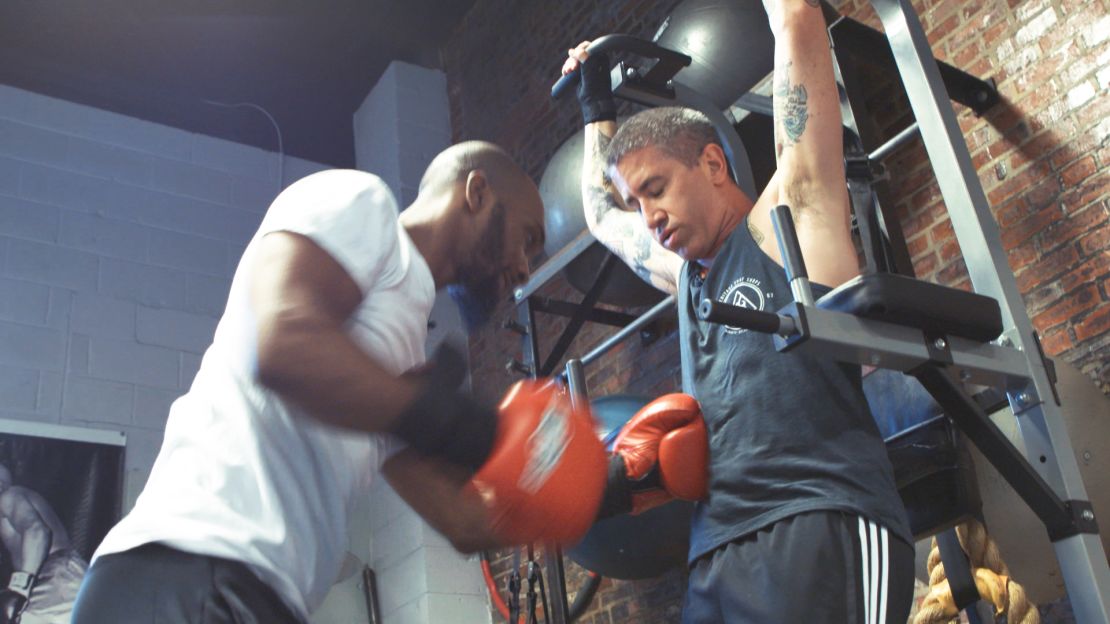
Several times on Solomonov’s tour, he recommends jogging along and randomly jumping toward the sky à la Rocky Balboa – the boxer played by Sylvester Stallone in the film series.
Solomonov has so much bottled up energy, it’s likely he actually does this. He’s a regular at one of the city’s most famous boxing gyms: Joe Hand’s in the Northern Liberties neighborhood.
Trainer Maleek Jackson takes Solomonov through a workout, catching his punches and pummeling his stomach while he hangs from high bars.
Jackson started learning to train while he spent 10 years in prison.
“Anytime I talk to people, I try to touch them deeper than the task at hand,” says Jackson. “I relate the training I provide to life. In life, you’re gonna get tired.”
It’s here where Solomonov lets himself get beat up, and where he fights.
For much of his adult life, Solomonov was addicted to drugs, including cocaine and heroin.
His brother David was shot and killed while serving in the Israeli army in 2003, an act that compounded his struggle. Solomonov managed a successful budding career as a chef, but he was living the double life of an addict.
It was about to unravel when Steve Cook and Solomonov’s then-wife got him to rehab. That was right after Zahav opened, and both initially struggled.
But Solomonov has been sober for nine years, and his restaurant has been a tremendous success.
Visit Zahav and you will taste all of what Solomonov says influences Israeli cuisine including Palestinian, Yemeni and Moroccan flavors.
You will also take away something from Solomonov’s determination.
“I want to represent the commonality and the richness of culture. I want to make a statement,” he says. “It’s like an ode to my brother in this whole thing, but I want to represent Israel, and I want to make a name for Israeli cuisine globally.
“But at the root of it, I just want people to come in and have a great time. I just want them to eat things that are fantastic.”





